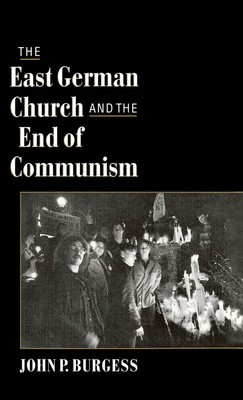
- We will send in 10–14 business days.
- Author: John P Burgess
- Publisher: Oxford University Press, USA
- ISBN-10: 0195110986
- ISBN-13: 9780195110982
- Format: 14.5 x 22.4 x 1.9 cm, kieti viršeliai
- Language: English
- SAVE -10% with code: EXTRA
Reviews
Description
This book addresses the role of religion in the massive political changes that took place in Eastern Europe in 1989. In particular, it examines the role played by the East German church in that country's bloodless revolution. Although some scholars and political commentators have noted that the East German church provided a free space in which dissident groups could meet, they have neither described nor assessed the theology that guided the church's political involvement. Drawing on his own research in East Germany and relying primarily on sources published in East Germany itself, John Burgess demonstrates the roots of the church's theology in Barth, Bonhoeffer, and in the Barmen declaration, which in 1934 pronounced Christianity and Nazi ideology to be incompatible. He explores how the dissident groups drew on church symbols and language to develop a popular alternative theology, and finally shows how the theological tension between the church and the dissidents provided
impulses for political democratization.
EXTRA 10 % discount with code: EXTRA
The promotion ends in 22d.09:19:39
The discount code is valid when purchasing from 10 €. Discounts do not stack.
- Author: John P Burgess
- Publisher: Oxford University Press, USA
- ISBN-10: 0195110986
- ISBN-13: 9780195110982
- Format: 14.5 x 22.4 x 1.9 cm, kieti viršeliai
- Language: English English
This book addresses the role of religion in the massive political changes that took place in Eastern Europe in 1989. In particular, it examines the role played by the East German church in that country's bloodless revolution. Although some scholars and political commentators have noted that the East German church provided a free space in which dissident groups could meet, they have neither described nor assessed the theology that guided the church's political involvement. Drawing on his own research in East Germany and relying primarily on sources published in East Germany itself, John Burgess demonstrates the roots of the church's theology in Barth, Bonhoeffer, and in the Barmen declaration, which in 1934 pronounced Christianity and Nazi ideology to be incompatible. He explores how the dissident groups drew on church symbols and language to develop a popular alternative theology, and finally shows how the theological tension between the church and the dissidents provided
impulses for political democratization.


Reviews